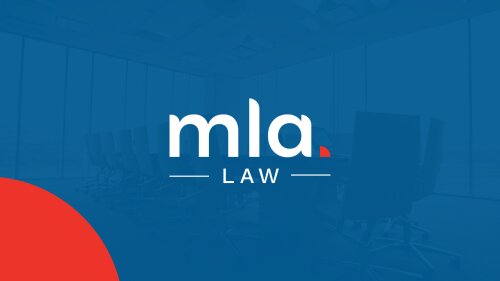Best Real Estate Lawyers in Greater Sudbury
Share your needs with us, get contacted by law firms.
Free. Takes 2 min.
Free Guide to Hiring a Real Estate Lawyer
List of the best lawyers in Greater Sudbury, Canada
Canada Real Estate Legal Articles
Browse our 1 legal article about Real Estate in Canada written by expert lawyers.
- Buying Property Abroad as a Canadian: A Legal Checklist
- Real estate law in Canada is mostly provincial, so rules on land registration, landlord-tenant rights, condos/strata, and land transfer tax differ by province and territory. For a typical home purchase, budget roughly 2% to 5% of the purchase price for closing costs in addition to your down payment, including land... Read more →
About Real Estate Law in Greater Sudbury, Canada
Greater Sudbury, located in northern Ontario, Canada, is a vibrant city with a thriving real estate market ranging from residential homes and condominiums to commercial and industrial properties. Real estate law in Greater Sudbury governs the buying, selling, leasing, and use of land and buildings within the city. It encompasses a wide array of legal activities such as property transactions, zoning regulations, landlord-tenant matters, and mortgage arrangements. Understanding the basics of real estate law can help residents, investors, and businesses navigate the complexities of property dealings in this fast-growing region.
Why You May Need a Lawyer
While it is possible to complete some property transactions without legal assistance, the services of a real estate lawyer are highly recommended in many situations. Common reasons you may need a lawyer in Greater Sudbury include:
- Purchasing or selling a home, condominium, or commercial property
- Reviewing or drafting purchase agreements and contracts
- Conducting title searches to confirm ownership and uncover liens or encumbrances
- Handling mortgage refinancing and loan arrangements
- Dealing with land transfers or division of property
- Assisting with zoning and land use issues, including by-law compliance
- Resolving disputes between buyers, sellers, or neighbors
- Navigating landlord and tenant matters, including rental agreements and evictions
- Settling boundary disputes or easement concerns
- Managing commercial lease agreements
A real estate lawyer in Greater Sudbury will ensure that your transactions comply with provincial and municipal laws, protect your investments, and help avoid costly mistakes or legal disputes.
Local Laws Overview
Real estate transactions in Greater Sudbury are regulated primarily by provincial legislation in Ontario, as well as specific municipal by-laws. Key areas include:
- Ontario’s Land Registration System: All transactions must be registered with the provincial land registry to ensure legal ownership and prioritize interests in land.
- Municipal By-Laws: Zoning by-laws in Greater Sudbury control land use, building permits, and property development. These rules set out what land can be used for, where buildings can be constructed, and the types of activities permitted on a property.
- The Residential Tenancies Act: Provincial legislation sets out rights and responsibilities for landlords and tenants, including leases, rent increases, and eviction procedures.
- Property Taxes: The City of Greater Sudbury administers property taxes, which fund local services. Understanding tax assessments and payment obligations is essential for all property owners.
- Environmental Regulations: Properties affected by contamination or located near sensitive areas may have additional compliance requirements under Ontario law.
- Disclosure Obligations: Sellers are required to disclose certain defects or issues related to the condition of the property which could affect its value or use.
Because local regulations can differ from provincial standards, it is important for buyers, sellers, landlords, and tenants to consult with professionals who are familiar with Greater Sudbury’s unique legal landscape.
Frequently Asked Questions
Do I really need a lawyer to buy or sell property in Greater Sudbury?
While it is sometimes possible to conduct transactions privately, a lawyer ensures legal compliance, protects your interests, handles complex paperwork, and registers the transfer of property title with the Ontario Land Registry.
What is a title search and why is it important?
A title search is a legal review of public records to verify property ownership and to check for liens, restrictions, or claims on a property. It is crucial to confirm that you are buying or selling a property free of legal encumbrances.
What are closing costs and who pays them?
Closing costs include legal fees, land transfer taxes, adjustments for taxes or utilities, and registration fees. Typically, buyers and sellers each pay their respective legal fees, while buyers are responsible for most other costs.
How do I find out if a property is zoned for my intended use?
You can inquire with the City of Greater Sudbury’s Planning Services or check the city's official website for zoning by-laws and permitted uses for a specific property address.
What happens if there is a dispute over property boundaries?
Boundary disputes often require a surveyor’s report and may be resolved through negotiation, mediation, or legal action. A real estate lawyer can help explore your options and represent your interests.
What rights do tenants have in Greater Sudbury?
Tenants are protected by the Residential Tenancies Act, which covers rights related to rent increases, privacy, repairs, eviction procedures, and more. Disputes are typically handled by the Landlord and Tenant Board.
Are there special steps for purchasing a condominium?
Yes. You should review the condominium status certificate, understand the condo corporation's rules and financial status, and confirm your lawyer’s review of all documents before proceeding.
What if there are problems with the property after I buy it?
If undisclosed defects are discovered, remedies may be available depending on the purchase agreement and the nature of the issue. Legal advice may be needed to pursue compensation or renegotiate with the seller.
How can I ensure my commercial lease agreement is fair?
A lawyer can review the proposed agreement, explain your rights and obligations, and negotiate terms to protect your interests when leasing commercial property.
Where can I get help in an urgent real estate matter?
For urgent situations-such as eviction notices, foreclosure, or fraudulent activity-seek immediate assistance from a local lawyer familiar with Greater Sudbury’s real estate laws.
Additional Resources
- City of Greater Sudbury Planning Services: Offers information on zoning, permits, and property development.
- Ontario Land Registry Office: Handles official registration of all property transactions and title records in Ontario.
- Landlord and Tenant Board (LTB): Provincial tribunal overseeing disputes between landlords and tenants in Ontario.
- Ontario Real Estate Association (OREA): Provides resources and consumer guides for buying and selling property in Ontario.
- Legal Aid Ontario: May assist eligible individuals who need legal advice on housing and real estate matters.
- Licensed Real Estate Agents and Brokers: Can assist with market analysis, property searches, and the practical aspects of transactions.
Next Steps
If you need legal assistance with a real estate matter in Greater Sudbury, consider the following steps:
- Identify your specific issue or the type of transaction you are involved in (buying, selling, renting, etc.).
- Gather all relevant documents, including agreements, title deeds, correspondence, and property records.
- Research local lawyers experienced in real estate law or ask for referrals from real estate professionals or local organizations.
- Schedule a consultation with a lawyer to discuss your situation and obtain tailored legal advice.
- Be prepared to ask questions about the process, legal fees, timelines, and any potential risks involved.
- Follow your lawyer’s recommendations and keep copies of all related documents and correspondence.
Taking early action and seeking professional guidance can help you protect your rights and investments, avoid costly mistakes, and ensure your real estate transactions in Greater Sudbury proceed smoothly.
Lawzana helps you find the best lawyers and law firms in Greater Sudbury through a curated and pre-screened list of qualified legal professionals. Our platform offers rankings and detailed profiles of attorneys and law firms, allowing you to compare based on practice areas, including Real Estate, experience, and client feedback.
Each profile includes a description of the firm's areas of practice, client reviews, team members and partners, year of establishment, spoken languages, office locations, contact information, social media presence, and any published articles or resources. Most firms on our platform speak English and are experienced in both local and international legal matters.
Get a quote from top-rated law firms in Greater Sudbury, Canada — quickly, securely, and without unnecessary hassle.
Disclaimer:
The information provided on this page is for general informational purposes only and does not constitute legal advice. While we strive to ensure the accuracy and relevance of the content, legal information may change over time, and interpretations of the law can vary. You should always consult with a qualified legal professional for advice specific to your situation.
We disclaim all liability for actions taken or not taken based on the content of this page. If you believe any information is incorrect or outdated, please contact us, and we will review and update it where appropriate.
Browse real estate law firms by service in Greater Sudbury, Canada
Greater Sudbury, Canada Attorneys in related practice areas.











